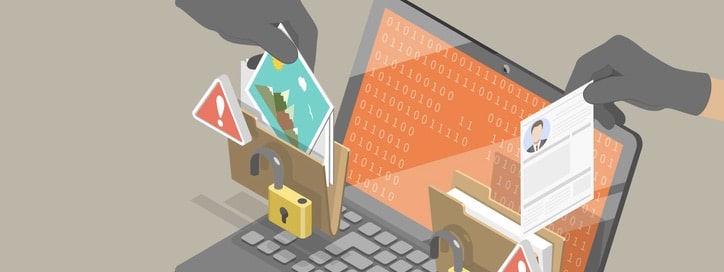Ensuring a robust data leak response plan is in place and regularly tested is a significant challenge for businesses of all sizes. It’s important for companies to have a plan that addresses the specific threats that everyday businesses may face. Many mistakes made before, during, or after a leak stem from gaps in crisis response plans. To reduce the impact of an information leak, there are certain steps that companies can take.
Composure and action
During very stressful situations, it’s essential for individuals to remain calm, even if the company receives a ransom request, or the entire network goes down. Reacting impulsively by randomly turning compromised machines on and off, hastily patching security holes, or making changes to the firewall can worsen the situation. Take a step back, assess the situation, and plan a methodical response.
Creating a data leak plan
Companies should make sure that all of their crisis scenarios and plans have a detailed data leak response plan. If a company already has a cyber leak policy in place, it should be reviewed to determine whether the company has details regarding specific types of data leaks. The crisis plan should provide immediate guidance on how the company can handle potential cyber leaks, helping to avoid critical mistakes during the stressful period after a breach.
Using other plans
If a company doesn’t have its own crisis plans and scenarios, it’s important to find an emergency crisis response plan somewhere to provide guidance. Before investigating or restoring business operations, companies should create a temporary crisis response plan or find an existing plan to help steer their actions. While not all steps may be applicable to the business, the plan will offer valuable guidance to minimize the impact of the crisis, and ensure the business continues operating as usual.
Communication and organization
If a company has already created a crisis plan, the plan should be reviewed regularly so that everyone involved understands the organizational responsibilities, as well as the communication channels that will be used. During high-stress situations, it’s important to avoid finger-pointing, confusion among employees, or incorrect information being leaked on social platforms or news outlets. Ensure that employees who aren’t directly involved in incident response aren’t overwhelmed with unnecessary information, which can slow down the response process and create chaos.
Controlling the flow of information
Efficient communication is essential during a data leak response. Companies should limit the flow of information to relevant parties and employees. Over-communicating can unintentionally damage a company’s reputation and increase the cost of response efforts. Exercise caution in what the company communicates and to who, ensuring that sensitive information is not disclosed to unnecessary parties.
Legal requirements
Companies should familiarize themselves with breach notification laws at the regulatory, local, and state levels, as well as any applicable data leak laws on defense. If possible, businesses should consult with a lawyer to ensure compliance with regulations beforehand. The extent of the damage uncovered during the investigation can determine the specific industry, state, or federal regulations that apply. Incident response vendors can assist in identifying and gathering the evidence required for any requirements on making reports.
Notifying affected parties
Following the investigation, it’s crucial to notify those who were or could’ve been affected by the breach. Reporting timelines are governed by regulations, and a company might be required to notify authorities, third parties, employees, vendors, or specific groups of customers. Notifications should be transmitted through the right channels, such as emails, social media posts, or phone calls, based on the laws that apply. Clearly communicate the date of the leak, the information that was compromised, where it occurred, and the steps taken or planned for protection. Honesty, transparency, and maintaining organizational integrity are key to safeguarding a company’s reputation, avoiding negative press, and preventing legal disputes.




